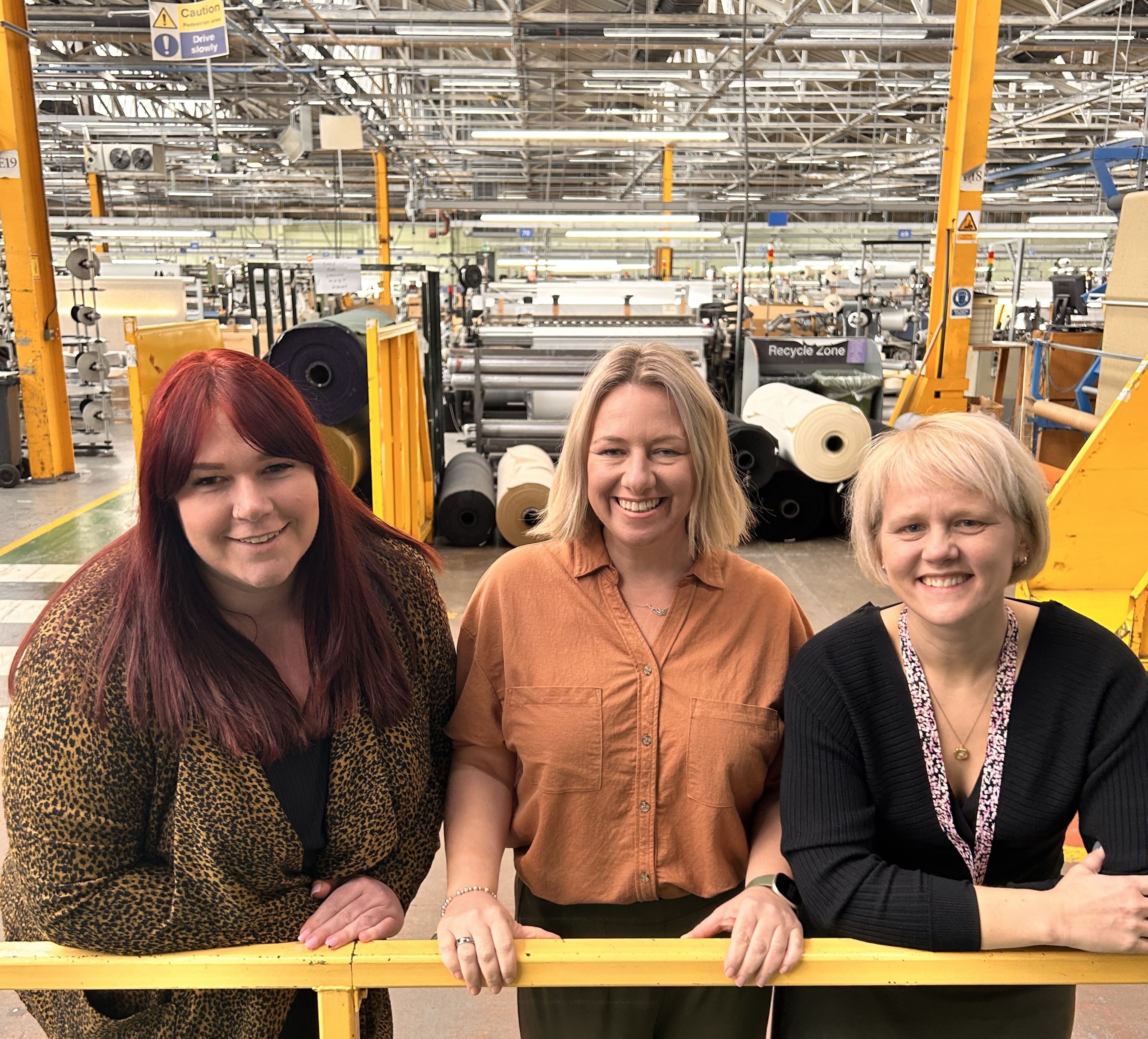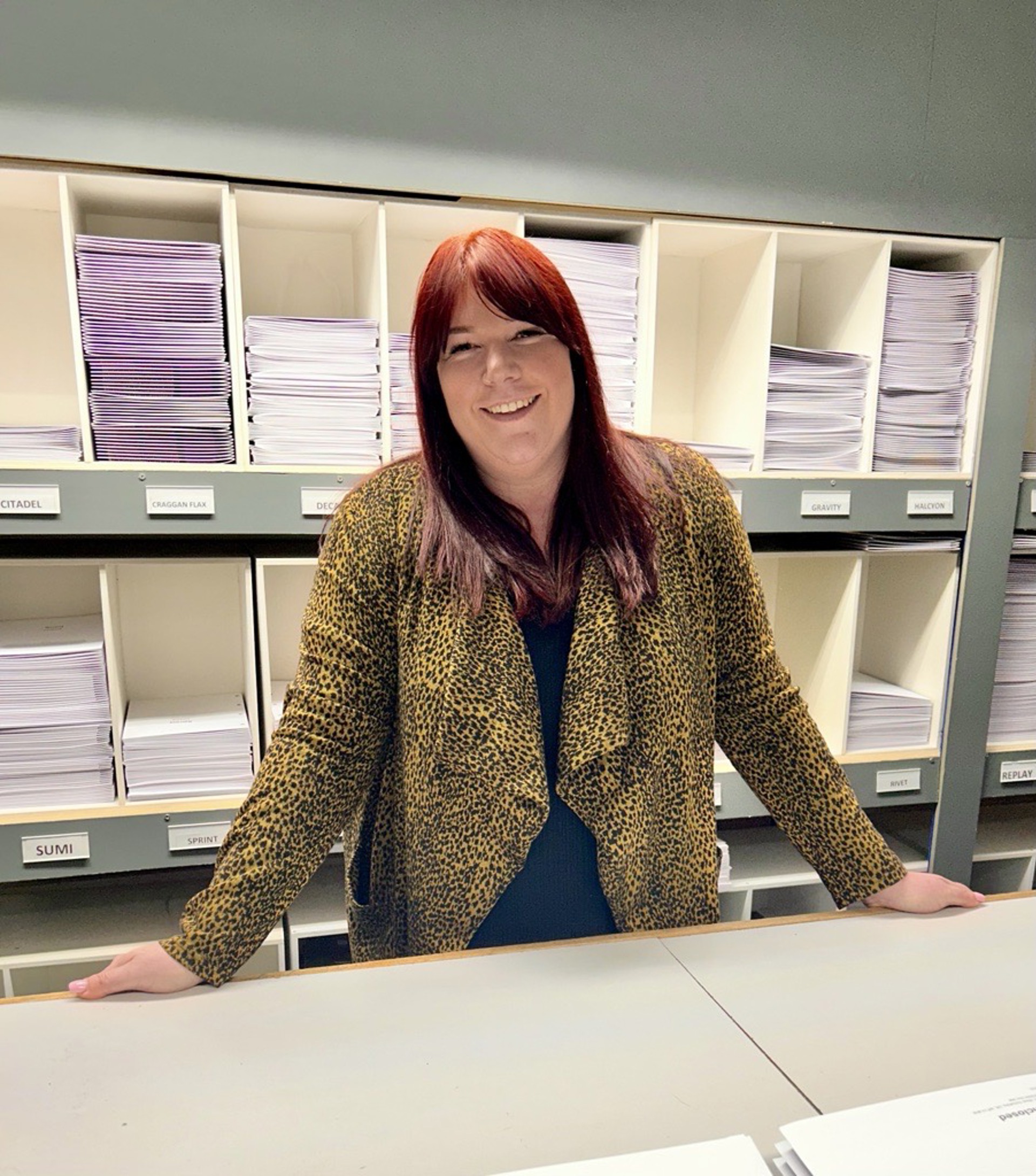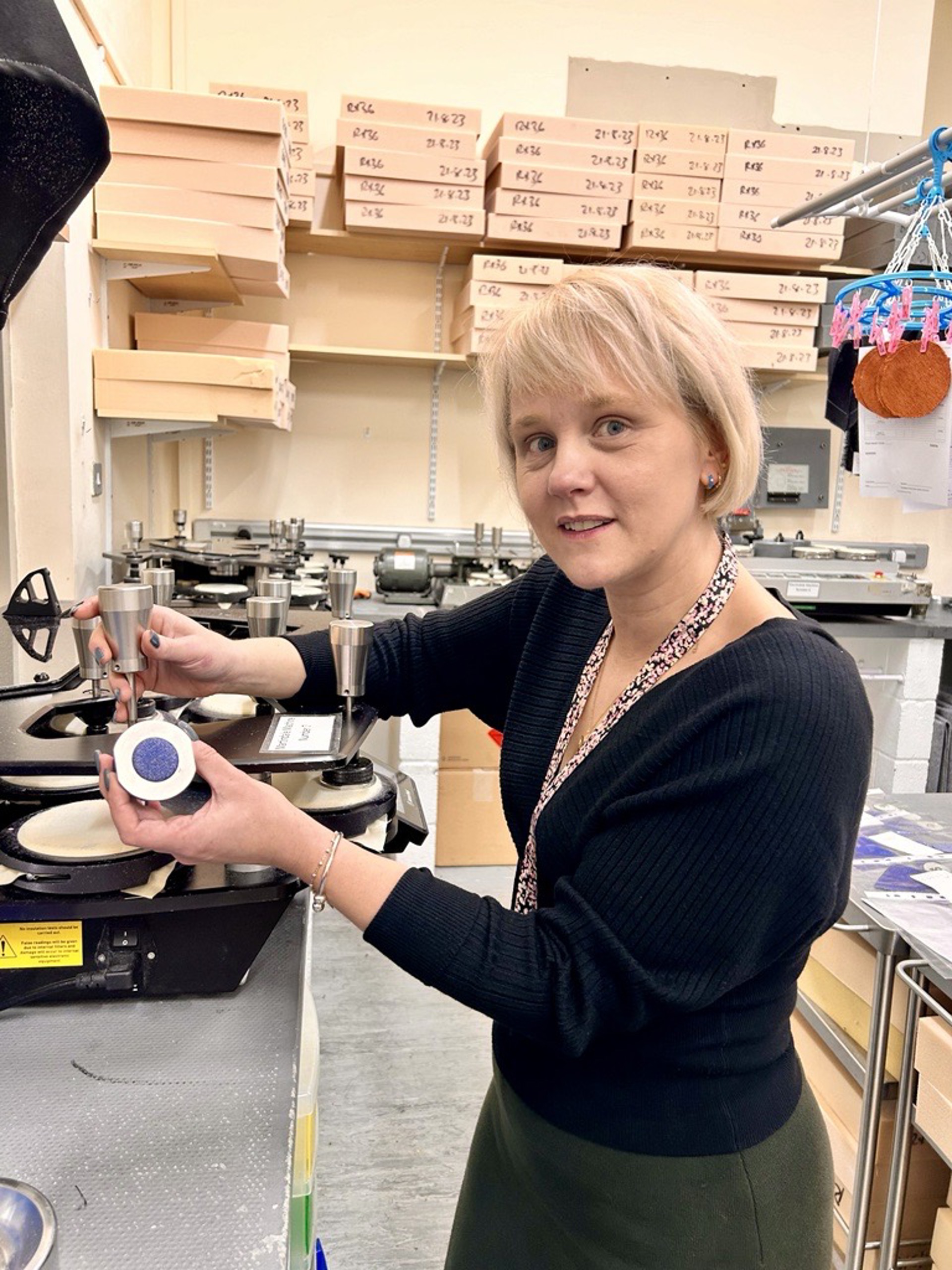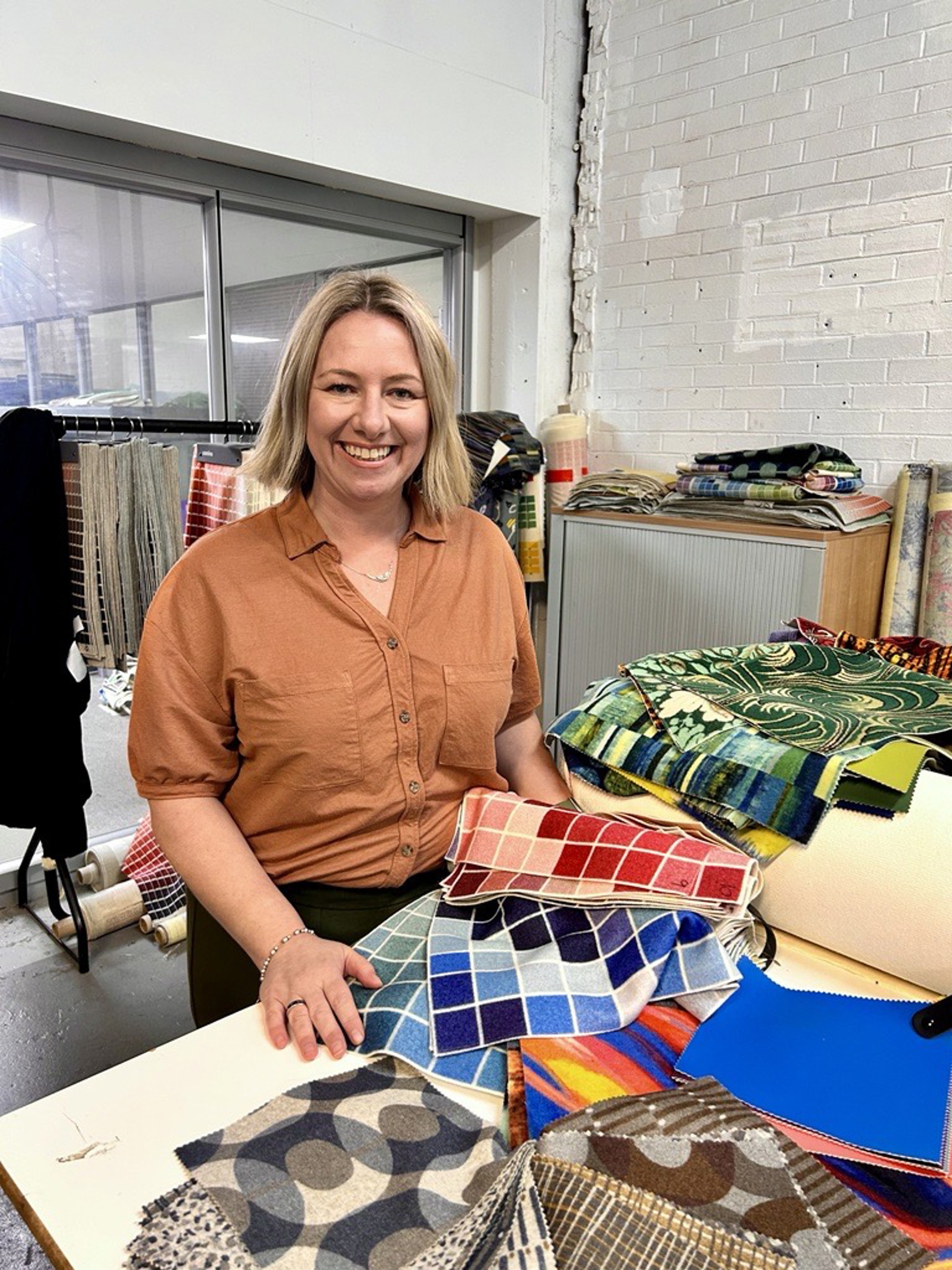
Camira's Incredible Women: Carving a career in operations
In the lead up to International Women’s Day on 8th March 2024, we’re keen to spotlight the phenomenal women that bring unique talent, strength, and drive to Camira.
A global celebration, this significant date recognises the social, cultural, political, and economic achievements of women. Featuring a remarkable line-up of women, this series will give an eye-opening insight into the experiences and aspirations of Camira’s female workforce.
First up… digital print coordinator, Zoe Longley, supply chain manager, Becca Joseph and product compliance manager, Mariell Trebowicz discuss the challenges of working in a male dominated environment, the technical side of textiles and the importance of encouraging girls to take STEM subjects in school.
“I’d like to encourage more women to consider a leadership role in manufacturing.”
When and why did you join Camira?
Becca: Zoe and I started at Camira in 2007; we applied for the same supply chain administrator role, and we were both successful, so management decided to create two roles instead one.
Before joining Camira, I was unsure about what I wanted to do. Manufacturing was not something I had initially considered but it did spark my curiosity and I’m pleased that I went for it. Despite having to navigate a male dominated environment which does come with challenges, I do feel I’ve really thrived in this sector, and I’d like to encourage more women to consider a leadership role in manufacturing.
Mariell: I began working at Camira in 2019; I had previously been a process engineer and then a technical project manager at different organisations. I completed a degree in Textile Manufacturing because I had always wanted to work in the industry. I think this started during school; I was really interested in the design side of textiles and my teacher suggested that I look into the technical side of the industry.
Zoe: I had heard of Camira through family and friends, and I knew it was a company that was growing, with strong sustainability credentials. I completed my undergraduate degree in fashion, but I wanted to broaden my knowledge - Camira felt like a great opportunity. I didn’t realise until after I joined the business that my textile teacher in high school was our CEO, Alan Williams’ mum!

“Juggling two children with full time work has been a challenge in itself.”
How have your careers in operations evolved?
Becca: I’ve worked really hard to progress in my career; starting in supply chain, I then managed the sample centre and the warehouse in 2020; this was just three weeks before the first lockdown hit, so it was a huge challenge navigating a new way of working. In 2022, I took on more responsibility for planning and purchasing and now I’m studying a Masters degree in Manufacturing Leadership at Lancaster University; it’s a three year course and I’m really enjoying applying my practical experience to the theoretical side.
Zoe: I’ve held several different roles at Camira since joining, but I now manage the production process for our new digital print machine; it’s exciting as it’s an industry-first for the transport sector, and we’re now in the midst of launching a new collection for the commercial interiors industry. Juggling two children with full time work has been a challenge in itself!
Mariell: Since joining Camira, I have been fortunate to be able to continue my professional development by undertaking both a level 3 and level 5 leadership and management qualifications courses through The Institute of Leadership & Management (ILM). This has given me a great platform by which to take on a greater level of responsibilities and supports my goal to take on higher-level roles within the business. The move to flexible and remote working policies within the business has also been a fantastic benefit, and one that has benefited me personally having two young children at home.

“There’s real value in hiring women in operations - they provide a fresh perspective and bring a range of skills, and ideas to the workplace.”
What challenges do you face as a woman in operations?
Becca: When I first started, women were massively outnumbered, and I am still often the only female in the room. We’ve come a long way since then, but there is still more to do. I think there’s real value in hiring women in operations - they provide a fresh perspective and bring a range of skills, and ideas to the workplace.
Mariell: Education plays a key role to in encouraging more girls to take up STEM subjects at school and then go on to pursue careers in these fields. Girls should be urged to think more broadly about their career paths and not limit themselves to occupations that have been traditionally filled by women. I am fortunate to report into a female leader which is really inspiring as it demonstrates that anything is possible in this sector.
Zoe: I think female leaders bring approachability and empathy to senior roles, and I think this works in their favour in gaining respect from their colleagues. The more we talk about, and address women succeeding in manufacturing and operations, the more the next generation of female leaders in manufacturing and operations will flourish.
